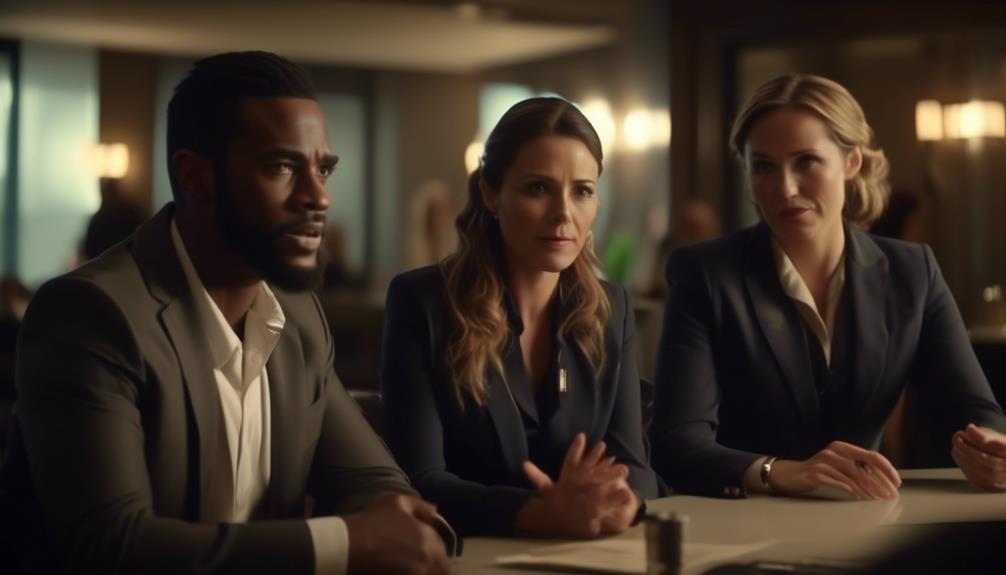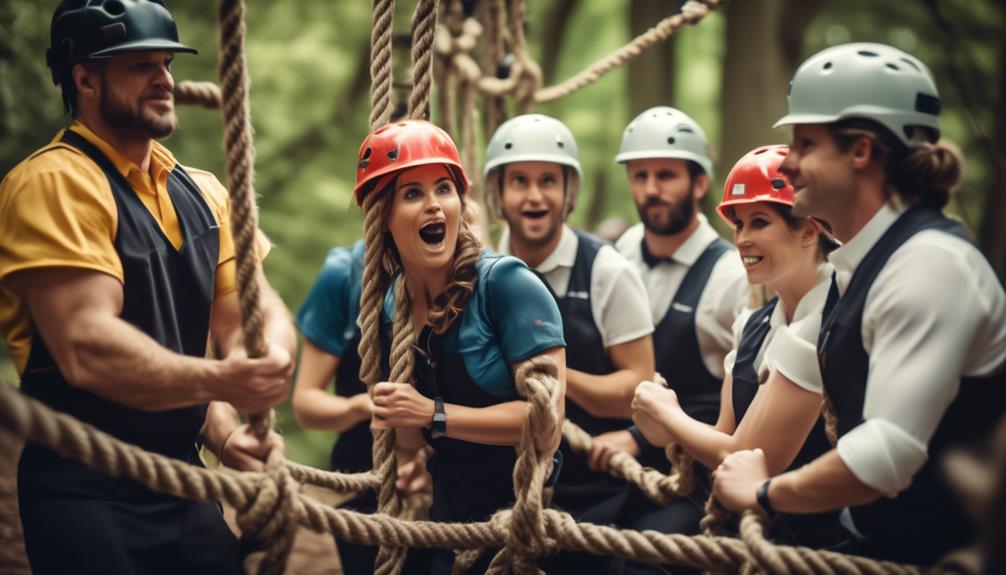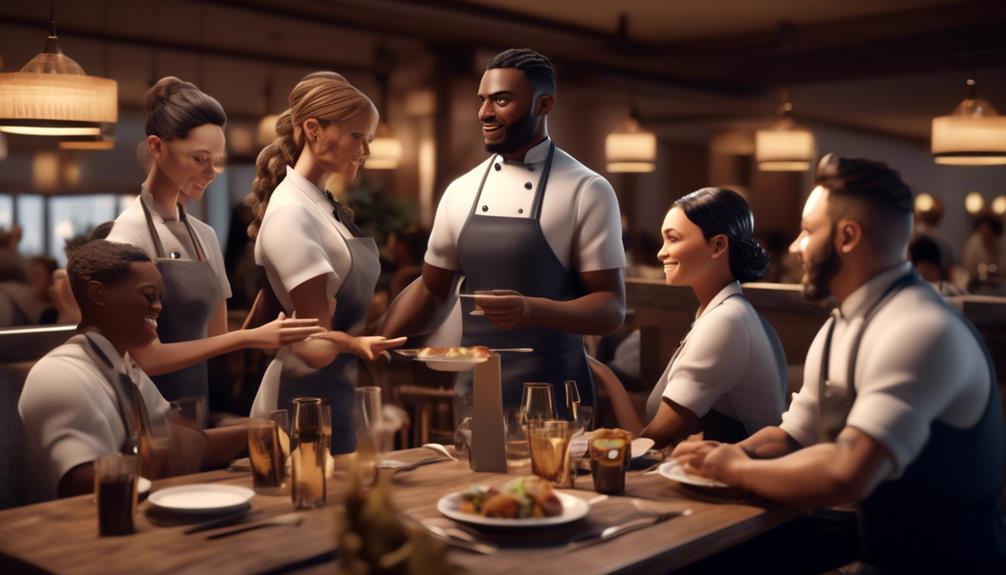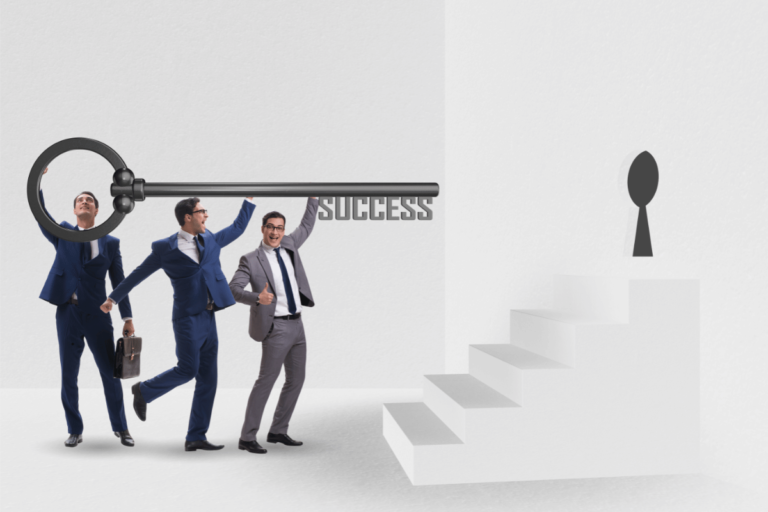Navigating Team Dynamics in the Hospitality Workplace
In today's fast-paced hospitality industry, navigating the intricate web of team dynamics can often feel like trying to find your way through a maze without a map.
The success of your team is not just about individual skills, but also about how well everyone works together.
As you strive to create a harmonious and efficient team, understanding the nuances of team diversity, fostering effective communication, and resolving conflicts are just a few of the critical factors to consider.
But how do you ensure that your team functions like a well-oiled machine, delivering exceptional service and creating memorable experiences for your guests?
Key Takeaways
- Recognize and value the diversity of beliefs, practices, and values within the hospitality workplace.
- Establish and maintain strong communication channels to promote effective teamwork and minimize misunderstandings.
- Address conflicts promptly and proactively to prevent escalation and foster a supportive work environment.
- Foster a positive work culture by building trust, promoting open communication, and encouraging team collaboration.
Understanding Team Diversity
Understanding team diversity is essential for creating a cohesive and successful work environment in the hospitality industry. Cultural awareness is a key component of team diversity. It involves recognizing, understanding, and valuing the different beliefs, practices, and values of diverse cultures within a team. By fostering cultural awareness, team members can develop a deeper understanding of each other, which promotes inclusivity and respect.
Having an inclusive mindset is equally important when it comes to team diversity. This mindset involves actively seeking out and including team members from diverse backgrounds, listening to their perspectives, and ensuring that everyone feels valued and respected. It also means creating an environment where all team members feel comfortable expressing their unique viewpoints without fear of judgment. An inclusive mindset fosters collaboration and innovation, as it allows for a wide range of ideas and experiences to be shared and considered.
Building Effective Communication Channels
To effectively foster the cultural awareness and inclusivity established in team diversity, it is imperative to establish and maintain strong and efficient communication channels within the hospitality workplace. Active listening and clear expectations are key components of effective communication. By actively listening to your colleagues, you demonstrate respect, build trust, and gain valuable insights. Additionally, setting clear expectations ensures that everyone understands their roles, responsibilities, and the goals of the team. To help you understand the importance of active listening and clear expectations, consider the following table:
| Active Listening | Clear Expectations |
|---|---|
| Demonstrates respect and empathy | Ensures understanding of roles and responsibilities |
| Enhances trust and rapport | Aligns team goals and objectives |
| Fosters open and honest communication | Minimizes misunderstandings and conflicts |
| Encourages diverse perspectives and ideas | Facilitates accountability and performance |
| Promotes a positive and inclusive work environment | Enhances overall team productivity |
Resolving Conflict and Challenges

When addressing conflicts and challenges in the hospitality workplace, it's essential to approach them with a proactive and solution-oriented mindset. Conflict resolution is crucial for maintaining a harmonious team dynamic and ensuring smooth operations.
When conflicts arise, it's important to address them promptly and directly. Encouraging open communication among team members can often prevent conflicts from escalating. When conflicts do occur, it's vital to listen to all parties involved and seek common ground.
Team challenges can also arise from external factors such as high workload, time pressures, or unexpected situations. In such instances, fostering a supportive and collaborative environment is key to overcoming these challenges. Encouraging teamwork and emphasizing the importance of mutual support can help in navigating through challenging situations.
Additionally, providing opportunities for team members to voice their concerns and suggestions can contribute to a more cohesive and resilient team. By actively engaging in conflict resolution and addressing team challenges, the hospitality workplace can foster a positive and productive environment for all team members.
Fostering a Positive Work Culture
To foster a positive work culture in the hospitality workplace, it's essential to focus on building trust and respect among team members.
Encouraging open communication allows for a transparent and supportive environment, where everyone feels valued and heard.
Additionally, promoting team collaboration fosters a sense of unity and shared purpose, leading to a more cohesive and productive work environment.
Building Trust and Respect
Building trust and respect is essential for fostering a positive work culture in the hospitality workplace. Trust building is crucial for establishing strong relationships among team members. Encourage open and honest communication to develop a foundation of trust.
Respectful communication is equally important in creating a harmonious work environment. Encourage active listening and empathy to ensure that every team member feels valued and understood. Set clear expectations for respectful behavior and address any issues promptly to maintain a respectful workplace.
When trust and respect are prioritized, team members feel more comfortable expressing their ideas and concerns, leading to a more collaborative and supportive work culture. By fostering an environment built on trust and respect, hospitality teams can enhance their performance and create a more enjoyable workplace for everyone involved.
Encouraging Open Communication
Encourage open communication to foster a positive work culture within the hospitality workplace. This means allowing team members to freely express their ideas and concerns. Active listening is crucial in this process. It involves fully concentrating, understanding, responding, and remembering what's being said. By actively listening, we can create an environment where team members feel heard and valued.
Additionally, providing constructive feedback is essential for open communication. This feedback should be specific, actionable, and focused on behavior rather than personalities. This approach encourages continuous improvement and reinforces a culture of open dialogue.
Promoting Team Collaboration
Fostering a culture of open communication sets the foundation for promoting team collaboration in the hospitality workplace. This allows for seamless interaction and synergy among team members. Encouraging collaborative problem-solving activities can enhance team collaboration by leveraging the diverse skills and perspectives within the team. This approach fosters a sense of collective responsibility and strengthens team unity.
Emphasizing team synergy through shared goals and values creates a positive work culture. In this environment, individuals feel motivated to contribute their best efforts towards common objectives. Implementing regular team-building activities and fostering an environment of mutual respect and support further promotes team collaboration.
Empowering and Motivating Team Members
To empower and motivate team members effectively, it's essential to provide them with opportunities for growth and recognition of their contributions. Recognition and rewards play a crucial role in motivating hospitality team members. Acknowledging their hard work and dedication, whether through verbal praise, employee of the month programs, or other forms of recognition, can significantly boost morale and motivation. Additionally, offering tangible rewards such as bonuses, incentives, or career development opportunities can further empower and motivate your team.
Leadership development is another powerful tool for empowering and motivating team members. Providing access to training programs, mentorship opportunities, and leadership roles within the organization not only fosters growth but also demonstrates a commitment to their professional development. By investing in their leadership skills, team members are more likely to feel valued and motivated to contribute to the overall success of the team.
Implementing Team-Building Activities

Team-building activities play a crucial role in strengthening the bonds and collaboration among hospitality team members. Implementing these activities can greatly enhance teamwork and communication within your team. Consider organizing a mix of outdoor retreats and virtual workshops to cater to the diverse preferences and needs of your team members. Here's a comparison between the two options:
| Outdoor Retreats | Virtual Workshops | Benefits |
|---|---|---|
| Engage in physical activities such as ropes courses or team sports. | Participate in online team-building exercises and discussions. | Encourages teamwork and problem-solving skills. |
| Provides an opportunity for team members to bond in a relaxed setting. | Allows remote team members to participate without location constraints. | Enhances communication and collaboration. |
| Offers a break from the usual work environment, promoting creativity and innovation. | Saves on travel costs and time, making it a convenient option for distributed teams. | Fosters a sense of unity and belonging within the team. |
Conclusion
So, there you have it – navigating team dynamics in the hospitality workplace is a breeze, right? Just remember to embrace diversity, communicate effectively, and handle conflict with grace.
Oh, and don't forget to foster a positive work culture and empower your team members. And if all else fails, just throw in some team-building activities and watch the magic happen.
Easy, right?
Keep up the good work!







